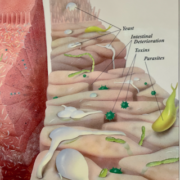Even though most of us take a good night’s sleep for granted, for many this just does not happen!
The reality is that many find themselves asking questions such as “Why can’t I sleep through the night?” or they simply mention that they are struggling to sleep.
Difficulties in falling asleep or staying asleep and waking unrefreshed is a common occurrence for many.

Sleep is a biological process that is essential for life and optimal health.
Sleep plays a critical role in brain function and systemic physiology. This includes metabolism, appetite regulation, and the functioning of the immune, hormonal, and cardiovascular systems.
Research shows that adults who get fewer than seven hours of sleep experience daytime irritability, fatigue, reduced concentration, and poor memory.
Sleep deprivation not only has detrimental effects on your work life, relationships and wellbeing. but also increases the risk of ongoing health problems.
Along with these, more serious metabolic and cardiovascular health issues can start to develop when insomnia becomes chronic.
These serious conditions are hard to attribute to poor sleep, as they are insidious and develop over longer periods of time.
If you or someone you know is having trouble sleeping – it’s important to get some support.
We’ll start with a list of the short and long-term effects of poor sleep.
We then expand a bit more on how blood sugar balance and also cardiovascular health impact sleep.

Short-term Effects of Poor Sleep
- Fatigue and sleepiness during the day
- Increased stress reactivity
- Increased pain sensitivity
- Impaired judgment
- Emotional distress and mood disorders
- Cognitive, memory, and performance deficits.
Long-term Effects of Poor Sleep (1)
- Hypertension
- Dyslipidemia (High blood lipids)
- Cardiovascular disease
- Metabolic syndrome
- Type 2 diabetes mellitus
- Colorectal cancer
- Weight Gain
When Sleep Dips, Blood sugar rises
Even though we can’t necessarily feel it, testing and research show our blood sugar levels are hugely influenced by our sleep.
In fact, adults reporting five hours of sleep or less at night were 2.5 times more likely to have diabetes compared to those who slept the recommended seven to eight hours at night.
While the exact link between poor sleep and diabetes isn’t definitely clear.
It is suggested that sleep deprivation may lead to increased nervous system activity of the fight or flight response.
This goes on to negatively impact several hormonal pathways that govern our metabolism.
Sleep for a Healthy Heart
This fight or flight response is one of the main reasons why long-term sleep issues are associated with cardiovascular diseases such as high blood pressure and heart attack.
Due to the physical stress poor sleep creates, the body starts to produce higher levels of ‘stress’ hormones such as cortisol and adrenaline.
The associated side effects of this action are increases in blood pressure, heart rate, and heart contraction, increasing the risk of cardiac diseases.
This was shown in a decade-long study, demonstrating five hours of sleep or less per night resulted in a 45% increased risk of a heart attack.
Another study found that sleep loss can activate inflammatory pathways in the body that are also linked with cardiovascular disease.

Weight Gain and Sleep
One of the most important impacts of sleep deprivation on health is that it can actually increase weight gain, as seen in a range of studies showing that individuals who regularly slept less than 7 hours per night were more likely to have higher average body mass indexes and develop obesity than those who slept more.
Studies showed that experimental sleep restriction was associated with increased levels of ghrelin, salt retention, and inflammatory markers as well as decreased levels of leptin and insulin sensitivity.
There has also been a range of experimental studies which show the effects of shortened sleep duration on two important hormones, leptin and ghrelin, which regulate our metabolism and energy.
Leptin the hormone which is released from adipose tissue (fat) and promotes satiety to decrease our cravings, is decreased with sleep deprivation.
While ghrelin, the hormone released from our stomachs to increase hunger and appetite is in fact increased. In a short-term study of 10 men, 2 days of sleep restriction was associated with an 18% reduction in leptin and a 28% elevation in ghrelin.
These changes coincided with an increase in hunger and appetite, especially for high-carb and calorie-dense foods.
What can you do if you can’t sleep at night?
A restful and restorative night’s sleep prepares you for the day ahead. This means that reducing or avoiding the factors that find you struggling to sleep can help you sleep better.
Here are 9 sleep-enhancing tips:
- Reduce or eliminate stimulants, i.e. caffeine and sugar;
- Go to bed at the same time each night;
- Create a dark sleeping environment;
- Invest in a comfortable mattress and bedding;
- Limit alcohol consumption;
- Practice relaxation exercises, or read a book in bed;
- Reduce screen time an hour before bed, i.e. phones, computers, or TV. In the evening and use an app that inverts the screen lighting to create black backgrounds with white text;
- Find a meditation app that helps you relax; and
- Get regular exercise.
Changing your habits to sleep better can take time, particularly if you have been struggling to sleep for a long time.
While you make changes to these habits, sleep-supporting herbs can help.
Remedies such as California poppy, Passionflower, Zizyphus, Jamaica dogwood, and Lavender can help you to fall asleep faster and sleep more soundly.
These herbs achieve their sleep-inducing effects by stimulating your body’s production of gamma-aminobutyric acid (GABA).
This is a neurotransmitter (chemical messenger) produced by your brain, GABA sends signals among your brain cells that reduce their activity. It also carries signals to other cells in your body, such as your muscles, helping them to relax.
GABA is involved in your body’s sleep cycles. With increased levels during the evening, it reduces stress, promotes calmness and relaxation, and helps ease you into sleep.
As an added bonus, unlike many pharmaceutical sleeping agents, herbal sleep remedies will not make you feel jet-lagged the next day, helping you “seize the day”!
Speak to our naturopathic practitioner at Your Wellness Centre about herbs that can help you to get a good night’s sleep.
Magnesium
Magnesium is valuable for countless actions in the body, including supporting healthy nervous system function.
This means you are less affected by stress; or sore, tense muscles that may be disturbing your sleep.
Magnesium levels may be low in those suffering from insomnia, so addressing this insufficiency can help improve sleep.
Our naturopath can recommend high-quality, highly absorbable forms of magnesium to help you re-establish a healthy sleep cycle.
Stops you from wondering why is sleep so important. answers the question shows you just why sleep is so important.
It also explains how ongoing sleep dysfunction can increase the risk of developing conditions such as diabetes, cardiovascular disease, and obesity.
If you are struggling to sleep then do use the supplemental and lifestyle suggestions shared above to get started.
Adopting some of these will help re-establish healthy sleep patterns. It will also have many positive effects on your long-term health.
Sleep Tight, Don’t Let the Bed Bugs Bite
Your Practitioner can help identify the underlying causes of disturbed sleep and offer quality natural medicines to help you overcome your sleepless nights.
Talk to our naturopath at Your Wellness Centre today about your journey to better sleep.
References:
https://www.ncbi.nlm.nih.gov/pmc/articles/PMC5449130/
https://bmjopensem.bmj.com/content/4/1/e000392#ref-16
Take the step toward a healthier you!
Call 9879 9596 and book an appointment today!











Leave a Reply
Want to join the discussion?Feel free to contribute!